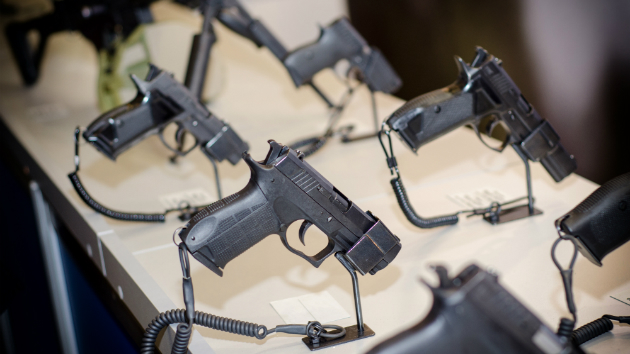Domestic violence concerns ahead of vote on Iowa gun measure

DES MOINES — October is Domestic Violence Awareness Month, and advocates in Iowa are especially alarmed about what comes up in a few weeks: a proposed gun rights amendment on the November ballot.
It is a question of whether “strict scrutiny” language should be added to Iowa’s constitution in establishing the right to keep and bear arms. Opponents say it would make it easier to overturn common-sense gun laws, including one prohibiting someone convicted of a misdemeanor domestic violence offense, or who is subject to a protective order, from having a firearm.
Lindsay Pingel, director of community engagement for the Iowa Coalition Against Domestic Violence, said such individuals should not possess a gun.
“It doesn’t necessarily have to mean that the firearm even has to be used to cause harm,” Pingel pointed out. “A person who harms might never fire that weapon at their victim, but they might use it to terrorize them.”
She noted it includes pointing it at the victim or threatening to kill themselves. Supporters of the proposed amendment stressed Iowa is one of only six states to not have a right to bear arms in its constitution. They added their approach is in response to legal upholding of broader gun restrictions in the U.S., arguing backers of the laws have been able to work around the 2nd Amendment.
Matt Sinovic, executive director of Progress Iowa, another group opposed to the ballot question, said in Missouri, one of the states adopting “strict scrutiny” language, a case saw some success by leaning on the argument.
“It really will depend on the court and their interpretation of this because it is so new,” Sinovic explained. “There’s nothing that would prevent that from happening here in Iowa”
The ballot question comes after a recent U.S. Supreme Court ruling expanding rights to carry firearms in public. A recent state report noted Iowa has seen 12 domestic violence fatalities in the first eight months of 2022. And Pingel feels there are more dangerous situations where a weapon is present, not on the radar of police or service providers.
“We know that for every victim that we hear about that is reporting a crime, or we unfortunately hear about after a tragedy, there’s always so many more who aren’t reporting what is happening to them,” Pingel emphasized.




